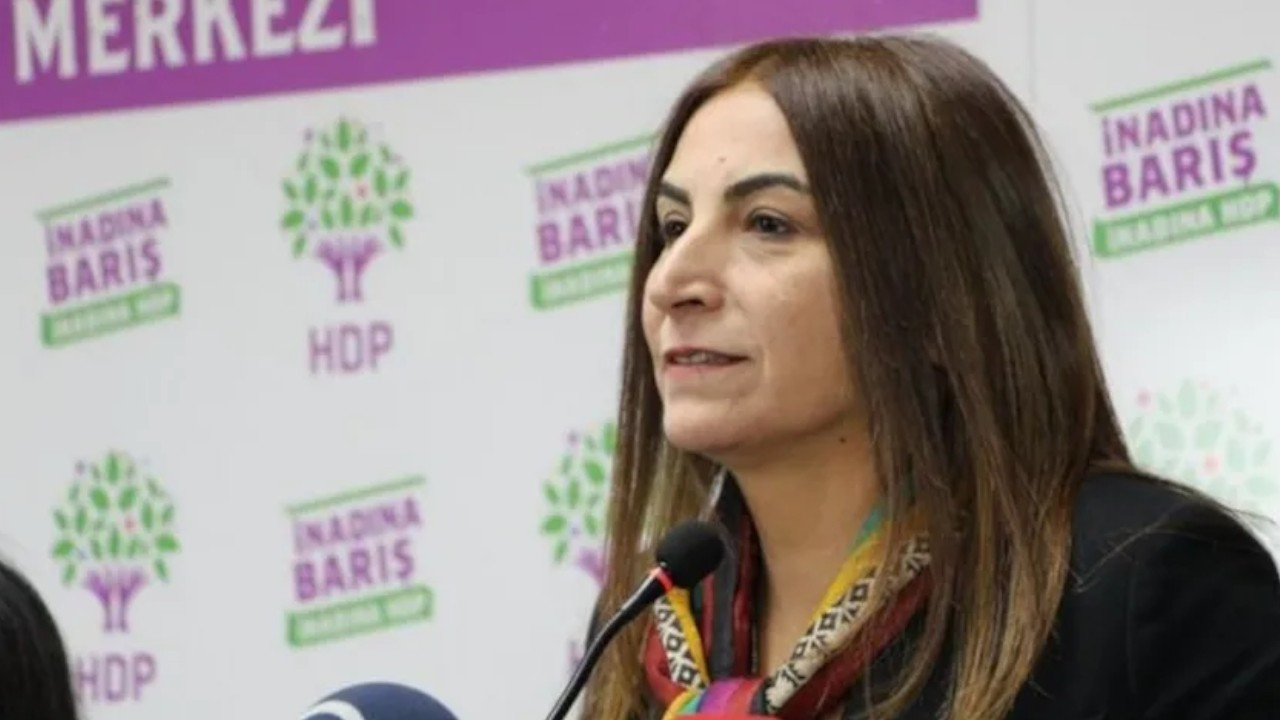Kurdish politician suffering from severe illness finally released from prison
A Turkish court released former HDP deputy co-chair Aysel Tuğluk, who suffers from dementia, following the latest forensic medicine report that says she is "unfit to remain imprisoned."
Duvar English
A Turkish court on Oct. 27 released former People’s Democratic Party (HDP) deputy co-chair Aysel Tuğluk who suffers from dementia.
The move came after the Forensic Medicine Institution's (ATK) report dated Oct. 26, indicating she is unfit to remain imprisoned due to her health condition. The ATK previously reported that Tuğluk could remain incarcerated because she was able to carry on with daily life without assistance.
HDP lawmaker Züleyha Gülüm shared Tuğluk’s photo after her release from Kocaeli Prison.
Tahliye fotosu…💜✌️ pic.twitter.com/UQxPlk2xuI
— Züleyha Gülüm (@zuleyhagulum) October 27, 2022
Following Tuğluk’s release, another HDP lawmaker Serpil Kemalbay said in front of the Kocaeli Prison that “An opportunity has been given to Aysel Tuğluk to regain her health. Of course, Aysel Tuğluk should not have been in prison anyway. As a Kurdish woman politician, she was a prisoner, a hostage despite the diagnosis and has suffered from dementia for nearly 2 years. It is a very late decision, but we are very happy that such a decision has been made. We want all sick prisoners to be freed.”
Aysel Tuğluk hiç zindanda olmamalıydı. 2 Yıla yakın bir süredir demans hastasıydı çok daha önce bu karar alınmalıydı. Ama yine de tahliyesinden dolayı çok mutluyuz. Dileriz bir an önce sağlığına kavuşur. pic.twitter.com/N5UNxHMuWT
— Serpil Kemalbay (@SerpilKemalbay) October 27, 2022
57 years old Tuğluk had been held in a high-security prison for more than five years on charges of membership in a terrorist organization. She was arrested in December 2016 as part of an operation against the Democratic Society Congress (DTK) on charges related to the Kurdistan Workers' Party (PKK).
In recent years, Tuğluk’s family and legal team began reporting her declining health. Tuğluk's condition deteriorated in the aftermath of her mother’s funeral in 2017, which was attacked by an anti-Kurdish nationalist mob. Tuğluk was on leave from prison to attend the funeral, but because of the violence, she was unable to see her mother being buried.
She had received a medical report from Kocaeli University Hospital stating that due to her condition, she was unfit to remain imprisoned. However, the ATK previously ruled that she was able to stay in prison and refused to approve her release.
Tuğluk’s team said that the longer she stays behind bars, the worse her condition will become. Activists, politicians, and human rights groups had been calling for her release since late last year with increasing urgency as her condition worsens.

 Top medical association says prisoner Tuğluk’s disease progressing rapidlyHuman Rights
Top medical association says prisoner Tuğluk’s disease progressing rapidlyHuman Rights Top Turkish court rejects release of jailed Kurdish politician, despite deteriorating healthHuman Rights
Top Turkish court rejects release of jailed Kurdish politician, despite deteriorating healthHuman Rights Sick prisoner Aysel Tuğluk forced to present defense during hearingHuman Rights
Sick prisoner Aysel Tuğluk forced to present defense during hearingHuman Rights Feminist writers Silvia Federici and Angela Davis call for sick prisoner Aysel Tuğluk’s freedomHuman Rights
Feminist writers Silvia Federici and Angela Davis call for sick prisoner Aysel Tuğluk’s freedomHuman Rights